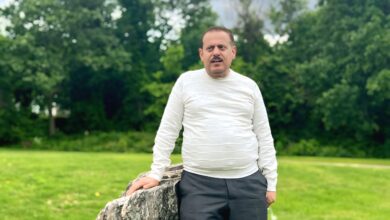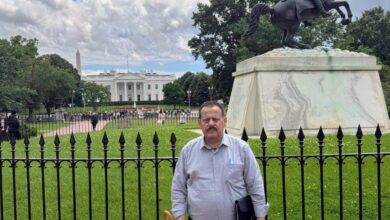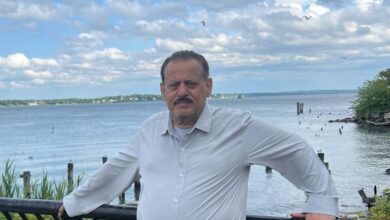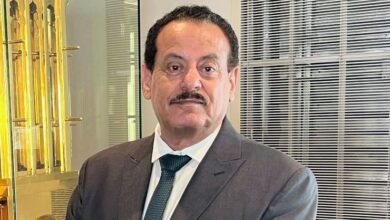Shyness, Anxiety, and Alienation
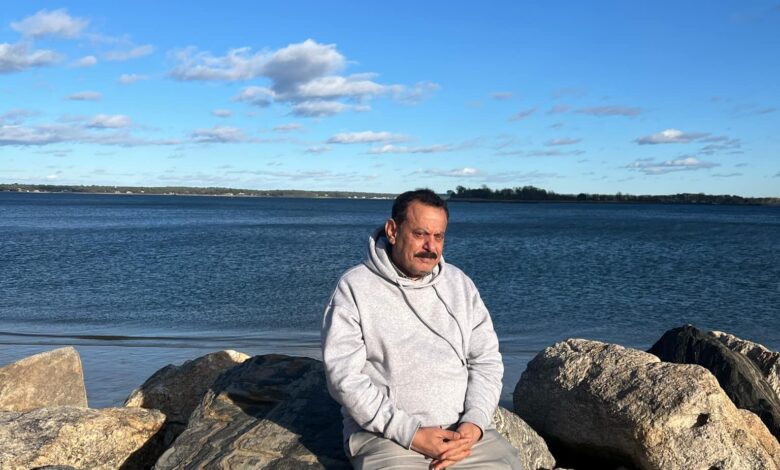
Yemeni mp
Ahmed Saif Hashed
I was intensely shy and profoundly introverted afflicted with a terrifying, crippling social phobia. This is how I first knew myself upon awakening to my own consciousness. True, I did not emerge from my first birth silent—I came with a birth cry I can imagine cleaving through the delivery room in our old house. And true, I was mischievous in childhood, perhaps in some stages of life. Yet none of this lessened the crushing weight of my shyness and withdrawal, which bore down heavily on my existence. The nightmares of my anxiety seized my tranquility, haunted my days and nights, clung to my presence, and pursued my escapes. My shame, above all, became the heaviest burden, the greatest impediment to my aspirations.
I was consumed by a dense conviction that my shyness crippled me, that I was unfit for anything in this life, and that my future would be scarred by this disability—inescapable, inevitable, woven into my very destiny.
With every failure, I felt the cause lay in my affliction. Often, I sensed my existence was superfluous, that there was no wisdom in what exceeded its necessity. Existence itself seemed at times absurdly indifferent to need. I lived my absence, my alienation in this clamorous world that bore no resemblance to my withdrawal, my shame, my dread, and had no need for my redundant, tiresome presence.
Later, when I read Victor Hugo’s The Hunchback of Notre Dame, I felt that the hump borne by its hero upon his back—I had long carried it upon mine. That hump reminded me of my shame and phobia, which weighed down my shoulders, denied me countless opportunities, deprived me of so much, and repeatedly confiscated my rights—even as my very presence felt like a burden upon existence itself.
True, at times I committed acts that seemed bold, rebellious, or mischievous. But most often, my shame accompanied me like my shadow; sometimes its overwhelming tyranny engulfed me, leaving no breathing room, no space to retreat. My bones shattered in narrow straits where neither light nor expanse could penetrate.
This withdrawal and shame wasted countless opportunities in my life—a life wearied by paths of loss, which I found myself captive to, or which exposed me to dangers, countless hardships, and innumerable embarrassing situations. At times, it birthed in me a thick sense of failure, profound disappointment, and inadequacy reaching the point of regret or annihilation.
The feeling of intense phobia and shame made me believe fate had struck me with an inherent imbalance, a flaw in my very makeup—rendering me incomplete, abnormal.. I felt an affliction washing over me, inseparable from my being, inseparable from the feeling of it. An affliction that made me inwardly rage against the fate that diminished me, that caused this deep-rooted malady and fracture within the soul.
They used to say angels have a role in shaping the fetus and perfecting it in the mother’s womb. As a child, I would ask my mother:
“Why does so-and-so have a cleft lip?!
She would reply: “The angels forgot to seal that cleft..” Then she would scold me, forbidding me to belittle her, lest my own future children be born cleft-lipped like her when I grew up and married and had sons!
Then questions would churn within me, and I felt filled with flaws and imbalance.. Deep down, I blamed the angels whose neglect had marred so much of me—my brain, my nervous system, my eyes. My shyness, my introversion, my feelings of phobia and embarrassment—were they not but a great negligence and failure on their part? Deserving of grief and reproach, and more if possible.
As I grew older and gained more knowledge of existence, of the human and political reality we inhabit, I discovered many deeper, more pernicious forms of imbalance and affliction plaguing the lives of peoples and societies.. I discovered that the true monstrosities are the tyrants, the autocrats, the corrupt, the warlords and merchants of war. I became certain that these grotesques are the burden upon this life, upon humanity, upon this existence weighed down by them.
* * *
My phobia silenced my voice, buried it alive, heaping earth upon it.. tearing and scattering it until it dissolved like vapor.. choking it with an iron fist before it could rise to my mouth.. swallowing my tongue from its root, anchored in a throat gagged by shame. Phobia—a tyranny exercising its crude authority over a life burdened by its own suffering.
I was still young, still tender in years, while my phobia and shame had grown larger than me—many times my weight and my lean years. I was pulverized by my shyness and phobia with relentless persistence, with repetition knowing no fatigue.. Disappointment and bitterness washed over me each time I fell prey to their nets, powerless to resist.
I lived captive to my introversion, to the modesty that clamped both hands over my muffled mouth—soundproofed, preventing me from voicing a need, a plea for salvation or rescue. One can imagine the depth of my shame—a shame so profound one would prefer destruction over uttering a word no longer than two letters: “Stop.”
How can a person be ashamed of their own voice, their own company, and then commit an act bordering on folly? Preferring potential danger to letting others hear their cry? How can someone, driven by modesty, shame, and overwhelming phobia, leap from a vehicle hurtling like a storm—without even asking the driver to stop? It is a phobia akin to suicide.
* * *
I was always ashamed of my voice as a child.. Even when voice recorders reached us, my own voice brought me no pleasure; I may have even once railed against the Lord of this voice.. Perhaps I plunged too deep into rebellion in moments of passion and abandon… Its reins slipped from my grasp, galloping to the farthest horizons.
I resist compulsion in all its forms, its authority, its force. But sometimes my rebellion veers off course, reaching what is extreme and distant.. I remember a day when my father struck me with his shoe—twice, three times—merely for being late to bring water for ablutions before the Maghrib prayer for a relative (may God have mercy on him). In a fit of rage and stupidity, I relieved myself in the bowl before pouring water over it, then gave it to the man to perform his ablutions—while my eyes swam in tears I fought to hold back.
My anger and agitation subsided, and perhaps a strange smile mingled with my tears as I watched him rinse his mouth, sniff water, and wash his face and countenance.. My foolishness had struck an innocent victim of the shoe-beating—even if I sensed at the time he was partly deserving of punishment.
The paradox is vast: between one who dares such an act, and in another context, is ashamed to let others hear his voice.. Strange paradoxes sometimes unite the un-unitable. Perhaps my state resembles, in these days of ours, those who claim to have “resisted seventeen destinies” while trembling in terror at a word or a social media post.
This can only happen due to a flaw and imbalance in the brain and essence of the claimant—a foundation of overwhelming fears, preventing exposure of errors and grave sins: corruption, violation, and a lack of confidence a thousand times greater than what I suffered in my youth and tender years… Thus life appeared to me, teeming with parallels and wonders, replete with contradictions, paradoxes, and fears.
* * *
I was likely less than fifteen years old at the time… Abu Shanab stopped his Land Rover when I signaled for him to halt and allow me to board – what we used to call “hitching a ride.” Abu Shanab, the man of the people, was exceedingly kind-hearted and accustomed to students “hitching rides,” those without a penny to their name. He would ferry them without taking a fare, especially if he found you walking along the road and you shyly beseeched him with a wave of your hand to take you along.
The driver was returning to the area of “Dhawka,” while I was bound for “Shi’b Al-A’la,” hastening to my village in Al-Qabeyta.. The vehicle was crowded with passengers. The driver stopped for me, and I clambered onto its running boards, securing a small perch at the very rear… Shortly after, I was dismayed to discover the vehicle was heading away from my destination.
I had assumed that one or more of the passengers would ask the driver to stop so they could alight, perhaps their destination matching mine. But disappointment swiftly overtook me as I realized everyone was heading in the opposite direction of my intended path.
All were bound for “Dhawka”.. Paralyzed by shyness and an overwhelming sense of dread, I couldn’t muster the courage to cry out or even request a stop to get off the speeding vehicle. It devoured the distance with greedy haste, surging relentlessly towards its goal. Driven by panic, I resolved to jump rather than ask it to halt… It nearly proved the saying true: “Shame kills.”
I leaped from the car.. My body slammed onto the ground. In that first instant, I thought my frame had shattered like glass… My chin struck the earth with brutal force. My teeth clashed violently together. The jaws collided upon each other until I could no longer distinguish upper from lower.. I felt my head explode and scatter like shrapnel from a bomb.
Sparks seemed to fly from my eyes, tumbling in every direction.. The impact made me feel like scattered wreckage, impossible to reassemble or gather; while the passengers inside screamed, startled by the sudden fall of one of their number, unaware I had leapt by my own will, driven by terror and shame.. The driver halted the vehicle at their cries to see what had happened?
My body bore multiple injuries.. Blood streamed from scrapes and scratches scattered across my limbs.. My shirt was torn in places, my trousers now dust-covered and soiled. Dirt and grime were most evident, as if I’d emerged from the vehicle’s exhaust pipe.. Blood flowed from the abrasions, some trickling from beneath my chin.
The driver descended from the cab to investigate. Meanwhile, wrestling against the shock of the collision and the sparks of pain, an even fiercer wave of embarrassment and shame forced me to gather my strength. With a defiance unknown to youth, I struggled to my feet to signal to those in the stopped vehicle that I was unharmed and all was well. The driver, for his part, looked like the survivor, not me.. My defiant, rapid rise, spurred by shame, was potent and absolute, achieved without uttering a single word… I bore the appearance of one assuming full and unmitigated responsibility for the incident.
After great hardship and battling the pain, I reached our home in Sharar. The first thing I saw when I looked at my face in the mirror was my wounded chin.. I saw an asymmetry beneath it – one side protruded, the other was recessed, jarringly out of alignment. The symmetry and evenness were gone. This imbalance, this flaw, remains noticeable to this day, visible to anyone who looks closely.
Today, we have grown, and we and our homeland cry out at the top of our voices.. The vehicle carrying us hurtles recklessly – no brakes, no headlights, no doors.. A vehicle wrestled over by drivers without licenses, devoid of skill or mastery.. Madmen of war, incapable even of reckoning profit from loss.. The vehicle careens at maximum speed and madness.. Jumping from it has become impossible for us.. Now it races headlong towards the precipice.. The fate of us all, and of the homeland, has become unknown and terrifying.
I conclude here with a reminder: silence, perhaps, also holds a meaning and a voice more profound and resonant than the clamor we hear.. And if our fears overwhelm us at times, and our silence grows louder than the noise, perhaps even this holds wisdom, lessons, and insight. What we need is a world, an environment, that understands it. For Shams Tabrizi once said: Silence, too, has a voice, but it needs a soul to understand it.
* * *


